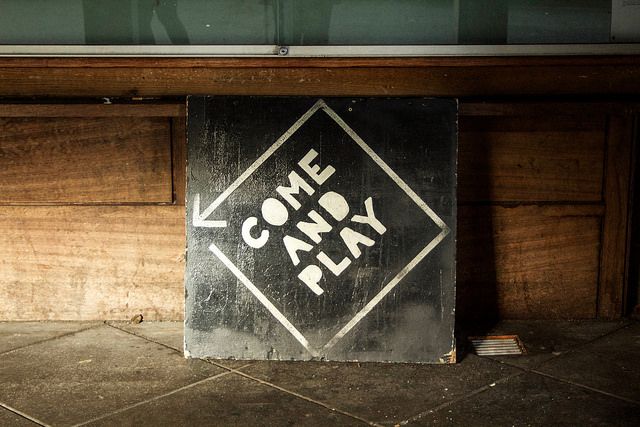
“It’s a celebration of all things fem-aligned”, summarised Sammy Copley, the co-ordinator of DU Players’ four-day FemFest, which came to a close on Friday evening. The festival featured discussions from prominent Dublin-based creators and activists, including production director of Lemonsoap Productions Julia Appleby and Transgender Equality Network Ireland (TENI) Chair Sarah Phillips. Alongside these talks were original Players events such as book clubs, poetry readings and daily exhibitions in the Players’ rehearsal room.
The first event was a discussion with Appleby, a local director and Players alumna. She spoke of the importance of femininity and pride for women in theatre, a traditionally male-dominated industry, while also stressing the importance of living and working, comfortably and unapologetically, as a woman. Appleby’s message resonated with the Players audience, as it spoke directly to many of the female creators in the society who wish to work in the theatre industry in years to come.
Then came “Stars in Their Eyes”, a traditional Players event that demonstrates the familial atmosphere that the society commits to – where people can be themselves and cultivate what makes them unique in a tolerant atmosphere. For Players, there is no better way to celebrate this than by allowing members to get on stage and commit to an theatrical lip-sync routine, eventually starting a riot in the crowd of singing and clapping to the beat of Icona Pop or Rina Sawayama. Despite the rowdiness of the whole thing, it was an event filled with fascinating performances of personality which emphasised the family ties within the society.
On Thursday, TENI Chair Phillips came to speak on the importance of transgender equality. In a public interview and questions-and-answers session, she described the bitter battle that is taking place in the Oireachtas over trans healthcare, self determination and overall social equality in Ireland. She made sure to draw attention to what the lack of trans rights meant for human rights as a whole and encourage activism while also leaving time to focus on oneself. She highlighted her personal interests and hobbies outside activism, such as her devotion to her three children and her undying love for the Pillow Queens, a Dublin all-female rock band. She also touched upon the importance of Dr Lydia Foy’s landmark gender recognition case of 2007, non-binary gender representations in Celtic mythology, and about Michael Dillon, a Trinity student in the 1940s who was the first known trans person to receive gender confirmation surgery.
The festival came to a close on Friday with a celebratory closing ceremony at the Samuel Beckett. This closing event overall embodied the idea that femininity is something to be celebrated, not mitigated, in society. After all, even though this year’s FemFest was a small event on Trinity’s campus, it inspired a passion in almost all present: From the quaint feminist poetry readings in the rehearsal room to the raucous, off-key renditions of Kesha songs in the theatre. The importance of the festival is reflected in the hopefulness of the message it conveys, and in the fem-aligned voices that make it possible. It was overall a fascinating and educational exploration of women’s rights and why they are important, yet it never failed to keep things fun.






